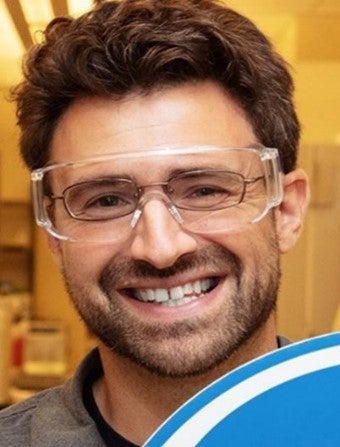Homeostatic systems in biology and medicine constantly face changing environmental conditions and have developed mechanisms to adjust physiological setpoints and adapt. These setpoint adjustments can be essential for survival. For example, insulin sensitivity is adjusted in response to many physiologic conditions including critical illness, infection, stress, and pregnancy to reallocate metabolic resources. However, this same setpoint flexibility leaves systems vulnerable to dysregulation and disease. In the case of insulin sensitivity, insulin resistance is the precursor to type 2 diabetes, a potential complication to setpoint changes brought on by obesity that afflicts about 1 in 10 Americans. At GE my teams seek to create novel methods of perturbing homeostatic setpoints to develop new classes of biophysical therapies and diagnostics. I’ll discuss some exciting examples including an ultrasound tool capable of stimulating specific sensory nerve pathways, electrical and optical sensors that measure metabolic changes from individual pathogens exposed to antimicrobials, and thermo-optical systems capable of monitoring melt curves from thousands of digital PCRs to identify and type mixed polymicrobial infections. Rather than just discuss differences between these device-based strategies and their biochemical and biomolecular counterparts, I’ll discuss specific applications where these biomedical devices may exceed current drug and diagnostic assay capabilities. I’ll highlight our application of the ultrasound-based sensory nerve stimulator and its ability to reset inulin sensitivity setpoints in type 2 diabetes. Finally, I’ll discuss the pathway to clinical translation, the status of the ultrasound-stimulator based therapy and additional engineering and design challenges associated with regulatory, market, and clinical-use scenarios.

Chris is a RPI graduate (Biomedical Engineering, ’03) and received a PhD in Biomedical Engineering from Johns Hopkins Medical School in 2009. Chris’ graduate work was in the BioMEMS lab of Jeff Wang and focused on combining microfluidics and single molecule imaging techniques for diagnostics. Since graduating, Chris has worked at General Electric’s corporate research center on both private and government healthcare related projects. For the last 7 years Chris has pioneered ultrasound-based neuromodulation therapies with his teams at GE, applying these new tools to combat chronic diseases (such as type 2 diabetes) in both pre-clinical and clinical trials. Chris is an inventor on over 25 granted patents and has 40+ peer-reviewed publications. As a principal investigator, Chris has led GE, NIH, DTRA, DARPA, Navy, and BARDA-funded teams and his ultrasound therapy team recently won the phase 1 NIH Neuromod prize.


